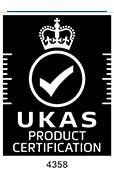
EAS details the minimum requirements necessary to determine you or your employees’ competence to carry out electrical design, construction, maintenance, verification and/or inspection and testing work in compliance with BS 7671.
Certification against EAS allows you or your employees to carry out domestic, commercial and industrial electrical work throughout the UK and extends beyond the scope of the Building Regulations. The purpose of the EAS is to improve the safety of electrical installation work and was created by bodies representing electrical installation industry as well as consumer safety interests.
The scope of the scheme includes the design, construction, maintenance verification and/or inspection and testing of electrical installations up to 1kV within the following work categories:
- A1 Electrical installations in buildings and other industrial locations:
- A1.1 Installation work in Dwellings
- A1.2 All other installation work
Request Advice
Applicants for scope A1.1 in England and Wales will be required to meet the requirements of Part P of the Building Regulations, described in Appendix 6 of the EAS document and may be further defined as:
Full-Scope: Any electrical installation work in dwellings
Defined-Scope: Electrical work undertaken in dwellings in connection with, or ancillary to other work
Scheme Details
Geographical Scope: United Kingdom
Approval: UKAS accredited
Scheme Requirements
The following general conditions must be met:
Relevant Standards - You or your employees must hold, or have access to, the technical standards for the approved scope. You or your employees can access the EAS document on the IET website and purchase BS 7671 (the current IET Wiring Regulations) from the NAPIT Direct online store.
Legal Requirements - All electrical work must be carried
out safely under the Electricity at Work Regulations.
In England and Wales domestic work must comply with all relevant parts of the Building
Regulations (and in particular Part P) and their associated Approved Documents. In Scotland, the Building (Scotland) Regulations must be met in accordance with their associated Technical Handbooks.
and their associated Technical Handbooks.
Qualifications - The key requirements of the EAS are met via qualifications and/or training. NAPIT has produced guides to electrical qualifications.
Insurance - You must have a minimum of £2m public liability insurance. For testing and inspection (such as EICR) you will need at least £250,000 professional indemnity insurance.
Instruments - You or your employees must have access to sufficient instruments to carry out tests relevant to your scope of work as well as an in date calibration certificate for you or your employees equipment where applicable.
Inspection - You must make available suitable installation work to demonstrate you and your employees’ ability to comply with BS 7671, the Electricity at Work Regulations and the Building Regulations. You or your employees must also make available the items listed in the EAS Document, along with any other items specified by NAPIT.
Certification - Suitable electrical installation certificates
must be provided to customers in line with
BS 7671.
Website Listing - Once successfully registered, your
business will be added to the NAPIT online search facility.
How EAS relates to CPS
If you are an electrical Full Scope or Defined Scope member of the CPS scheme you will automatically comply with EAS. For anyone wanting to demonstrate competence to carry out non-domestic electrical installation (or domestic installation outside the scope of Part P) your membership would fall within the scope of EAS alone.
Note that if your work requires both CPS and EAS, there will be no additional changes but the ongoing surveillance assessments of your work may require a sample of both domestic and non-domestic installations.